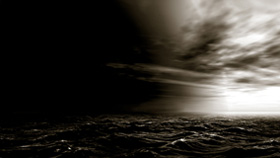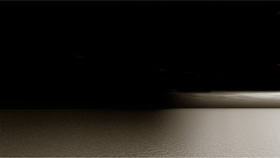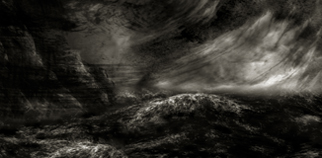
bauer paul
bohusch wolfgang
bollenberger ulrike
brucic carmen
de keller sandra
del missier renée
freuis catharina
gavrich irina
girardoni johannes
guschelbauer markus
hardegg luise
hosch rainer
klomfar bruno
koller severin
larcher claudia
manfredi anja
monaco julie
nguyen monika
oberndorfer markus
okazaki elsa
oláh stefan
ribarits tina
rodiek romy
sailer gregor
schell moritz
schmid anita
six&petritsch
traxler helga
waldschütz andreas
zeisel magdalena
ziegler laurent
JULIE MONACO
ABOUT THE WORK
Participation at the Exhibition ARCHITECTURE | LANDSCAPE (2012)
“cs_0, cs_01”
In the cs_0, cs_01 series, artificial digital conditions not occurring in nature are produced as
abstracted reality. The production of digital nature occurs through the manipulation of
predetermined parameters of a previously defined selection of software tools.
It is part of the essence of the digital picture that, in utilizing the computer, it creates more
than reality, but is still based on reality. The digital picture contains the possibilities of
painting (subjectivity, freedom, unreality) and photography (objectivity, mechanics, reality);
reproduction and imagination are combined in the digital picture.
cs_0, cs_01 is created with software tools, the selection and parameters of which are
defined as well as generated by several computer programs. The visualization of the data
pack occurs through rendering. Rendering is the optical revaluation of a three-dimensional
model or two-dimensional pixel image via computer-supported processes/algorithms.
The analog photo series cs_0, cs_01 consists of artificial, digitally generated pictures
without real origins, the basis of which is number – such as numerical codes.
The image created uses neither concrete models, nor photographs or scans, nor is it generated
from a real copy. The result is conceived by concrete, previously defined, calculation options.
In analogy to nature. The subject.
Similar to cinematic wide screen, the data pack is visualized (rendered) in a 16/9
proportional format that optimally stages illusion and fictive space.
cs_0, cs_01 behaves like film stills from an animation and, in its dynamic sequence of
subjects such as sky, clouds and watery consistency, suggests movement within the
construction and creates a time delay in both pictorial directions – a forward as well as
backward process.
The surface structure of the computer screen replaces the function of the window, connoting
the opening onto an outside. In terms of color, the window motif cs_0, cs_01 is determined
by the basic tint of sepia, similar to how it has emerged as such in the traditions of
photography and film.
An actual correspondence to reality is not present. Rather, the subject presents itself as a
hallucinatory “memory” of real processes.
TEXT ABOUT JULIE MONACO by ELISABETH PRIEDL:
For years Julie Monaco has worked with constructions. Analytical considerations regarding analog and digital models are the basis for her work. Fascinating pictures are the result of this research. Initially they presented landscapes with a classical appearance, and they became increasingly abstract only by way of repeated interventions. This is where the deconstruction of the constructions sets in. Let us begin with her constructions: When looking at the surface, Julie Monaco seems to compose works. Landscape pictures, especially views of the sea that could not be anymore classical, with low-lying horizons, suggest an endless expanse. Sometimes the sea is leaden and motionless; sometimes the onlooker sees stormy and lashing waves, with brilliant cloud formations building up against the sky. The onlooker’s viewpoint is in different places – sometimes very high, sometimes deep below, so that you can almost smell the water. Dutch landscape painters of the 17th century, such as Van Goyen or Ruisdael, had a deep impact on this theme, the stretched, cinemascope-like format that Julie Monaco uses mainly reinforces this impression. Altogether, a gloomy, eerie atmosphere prevails. In spite of the perfect make-believe, certain doubts linger – something about these powerful sea views is undefined and unique. The lighting is unrealistic; light and dark are arranged in such an extraordinary fashion, as nature would never be able to achieve. The line on the horizon is too sharp, the clouds are too low, the waves have a suspicious glitter, … At first sight, the sepia color of the pictures is a reference to photography - of the kind that we no longer know today – a reference therefore to things long gone by, but if we search the repertories of our minds, this does not take us any further. These are rather visionary images that may perhaps give a foreboding of things to come. The suggestion – the construction – is too perfect. Read the whole article
ABOUT THE ARTIST
born 1973 in Vienna
EDUCATION
2002 2000 1998 1996/97 1996 1995 1991/92
Diploma (with distinction) from the University of Applied Arts, Vienna Transmedia art with Brigitte Kowanz Bionic, Raleigh Studies, Hollywood, Los Angeles, 3D Softimage, Animation Studied at the University of Applied Arts, Vienna, Transmedia Art with Brigitte Kowanz Studied at the Academy of Fine Arts, Vienna, Master class Michelangelo Pistoletto for Sculpture Studio for the New Media, Peter Kogler Grafik-Design-College Studied at the Academy of Fine Arts, Vienna, Master class Ernst Caramelle for Graphic Art
CATALOGUES | PUPLICATIONS | ARTICLES | REVIEWS
2011 2011 2010 2009 2008 2007 2006/07 2006 2005 2004 2003 2000 1999
Monografie JULIE M O N A C O, Springer Verlag isbn 978-3-7091-0434-7 Was spricht das Bild, Gegenwartskunst und Wissenschaft im Dialog... Bilder, Wunderwelt, Fotogalerie Wien 243/2010, Vienna Kreuzungspunkt Linz, Junge Kunst und Meiserwerke, Lentos Kunstmuseum Linz EIKON, International Magazin for Photography and Media art, Heft 66 ISBN: 978-3-902250-47-6 MUSA, Stark bewölkt - flüchtige Erscheinungen des Himmels, Springer Wien, ISBN: 978-3-211-89113-1 “Fotografie die Sammlung” Lentos Kunstmuseum Linz 2008, ISBN: 978-3-85252-919-6 “Stelle, Siedlung, Lager” Edition Selene, ISBN: 978-3-85266-284-8 servus austria, frame Nr. 20/07, page 274, alexander pühringer mutations, contemporary european photograhy, catalogue, page 160 21, catalogue by hilger contemporary, ISBN: 3-900318-74-3 wonderland, frame, Nr.18/19/06, page 66, markus mittringer : nordlicht auf befehl boys and sisters, ursula brochard, cover-illustration visum et repertum, catalogue, stella art foundation painting photos, frame Nr.14 mai/juni 05, page 60, alexander pühringer kunst im T-center, catalogue, page 52 kunstzeitung NR.92 april, antje mayer: schrecklich schön focused daily, catalogue by klausengelhorn20, ISBN: 3-902371-01-3 arte&cinema, open 2003, catalogue, page 30 kondensat NR.18. kondensat NR.20 globalization, a scientific discussion?, passagen verlag, ISBN: 3-85165-445-5 incontro con franz west+werkstatt, fama&fortune bulletin NR.25
SCHOLARSHIP | AWARDS | GRANTS
2008 2007 2003 2002
National stipend for applied arts, Federal Ministry of Education, Art and Culture Scholarship for international studies in artistic photography in New York, Federal Chancellery of Austria (BKA) Premiere Sponsoring Scholarship by the University of Applied Arts, Vienna Award of Merit of the Federal Ministry of Education, Science and Cultur
CONTACT
BY COURTESY OF GALERIE HILGER


